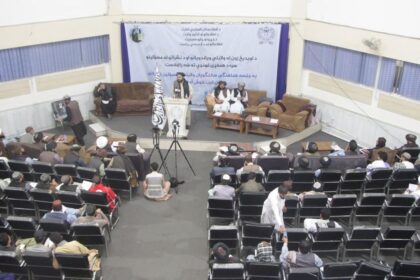RASC News Agency: Prominent American media outlets have reported that thousands of Afghanistani nationals who supported U.S. and coalition forces over the past two decades are now stranded in Taliban-ruled Afghanistan abandoned without meaningful protection or support. These individuals, once hailed as critical allies in the U.S.-led war on terror, now live under the constant threat of retaliation from the Taliban, who view them as traitors and collaborators. This humanitarian and strategic crisis has deepened since the Trump administration’s decision in January to halt oversight of the Special Immigrant Visa (SIV) process, which had been the primary legal mechanism for relocating these vulnerable allies to the United States. The suspension effectively dismantled protections for thousands of interpreters, logistical aides, and civil society partners who risked their lives to support American troops and initiatives.
Many of those left behind were part of a post-withdrawal resettlement initiative known as “Operation Enduring Welcome,” launched in 2022 following the chaotic U.S. exit from Afghanistan. The program was designed to assist eligible Afghanistani allies in securing U.S. visas and safe passage. However, according to recent reports, the initiative is slated to expire on September 30 of this year further jeopardizing the lives of those awaiting relocation, and signaling what many see as a slow withdrawal of American responsibility. Congressman Joe Morelle, a member of the U.S. House of Representatives, condemned the rollback in unequivocal terms. “These brave individuals stood with us during our longest war, often at extraordinary personal risk,” he said. “We made them a promise. To renege on that promise not only endangers their lives, but also sends a dangerous message to future partners that the United States cannot be relied upon to stand by its allies.”
Nick Stefanovich, Director of the Monroe Veterans Services Agency and a former U.S. Marine with combat experience in Afghanistan, emphasized the indispensable role Afghanistani partners played on the battlefield. “We never advanced in a conflict zone without them,” he stated. “There was not a single mission I was part of where we didn’t have at least one or two local allies standing beside us. They were not just interpreters they were lifelines.” Further compounding the crisis, the U.S. State Department informed Congress in late May that the Office of Afghanistani Relocation and Integration (CARE) would be dissolved by July 1, as part of a White House initiative to “streamline government functions” under the Trump administration’s proposed 2026 federal budget. While framed as a bureaucratic adjustment, the closure effectively eliminates one of the last remaining institutional pathways for threatened Afghanistani allies seeking refuge in the United States.
The U.S. Congress is scheduled to vote on the proposed budget and associated agency closures in October. Human rights advocates warn that failure to extend and fund these relocation programs will leave thousands of loyal Afghanistani partners at the mercy of a regime that has shown no regard for international norms, human rights, or the safety of those deemed adversaries. Since regaining control of Afghanistan in August 2021, the Taliban have engaged in widespread reprisals, extrajudicial detentions, and targeted killings particularly of those accused of aiding foreign forces. Despite international outcry, the regime continues to operate with impunity, while thousands of U.S. allies remain trapped in a system of broken promises and vanishing lifelines.






